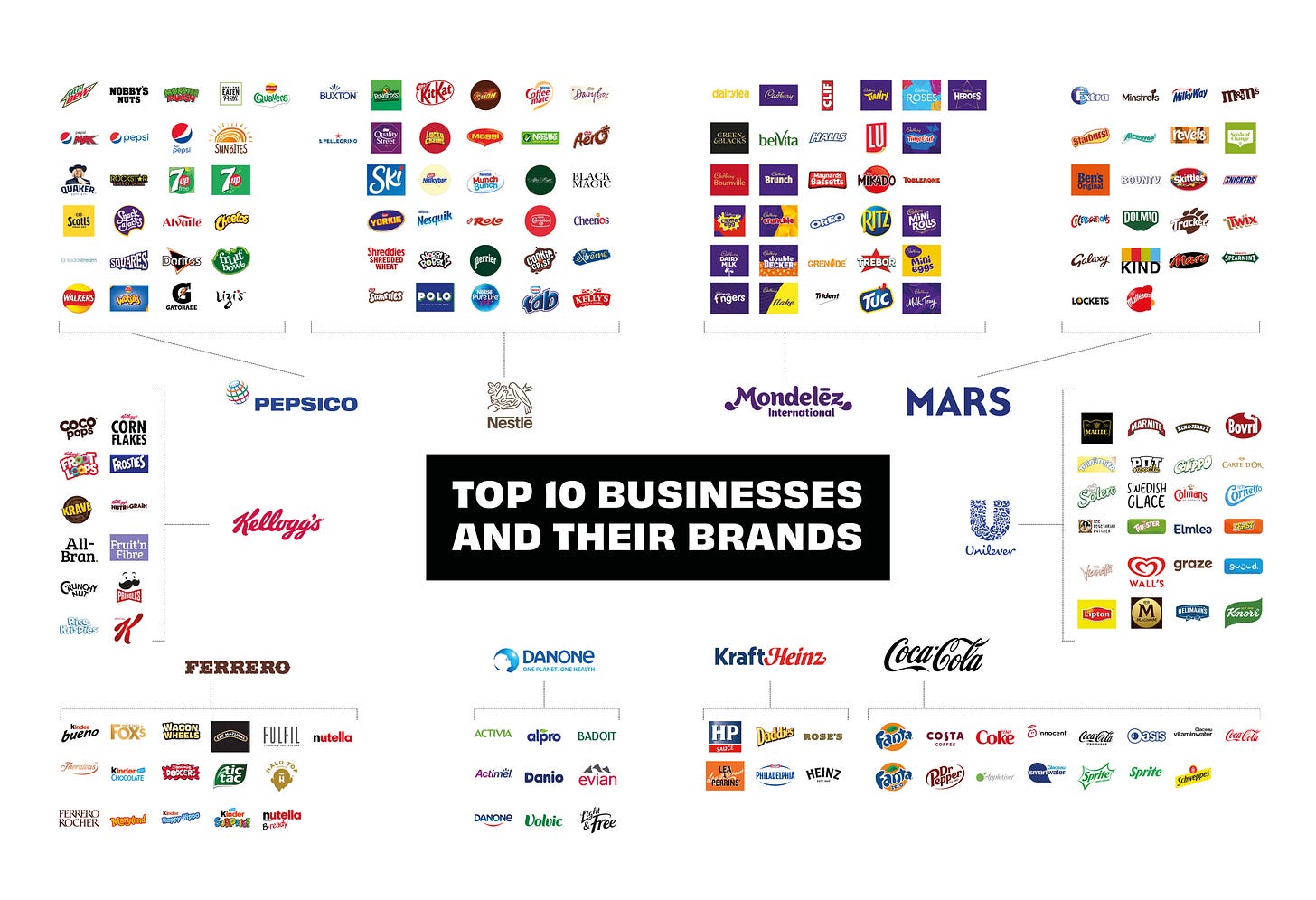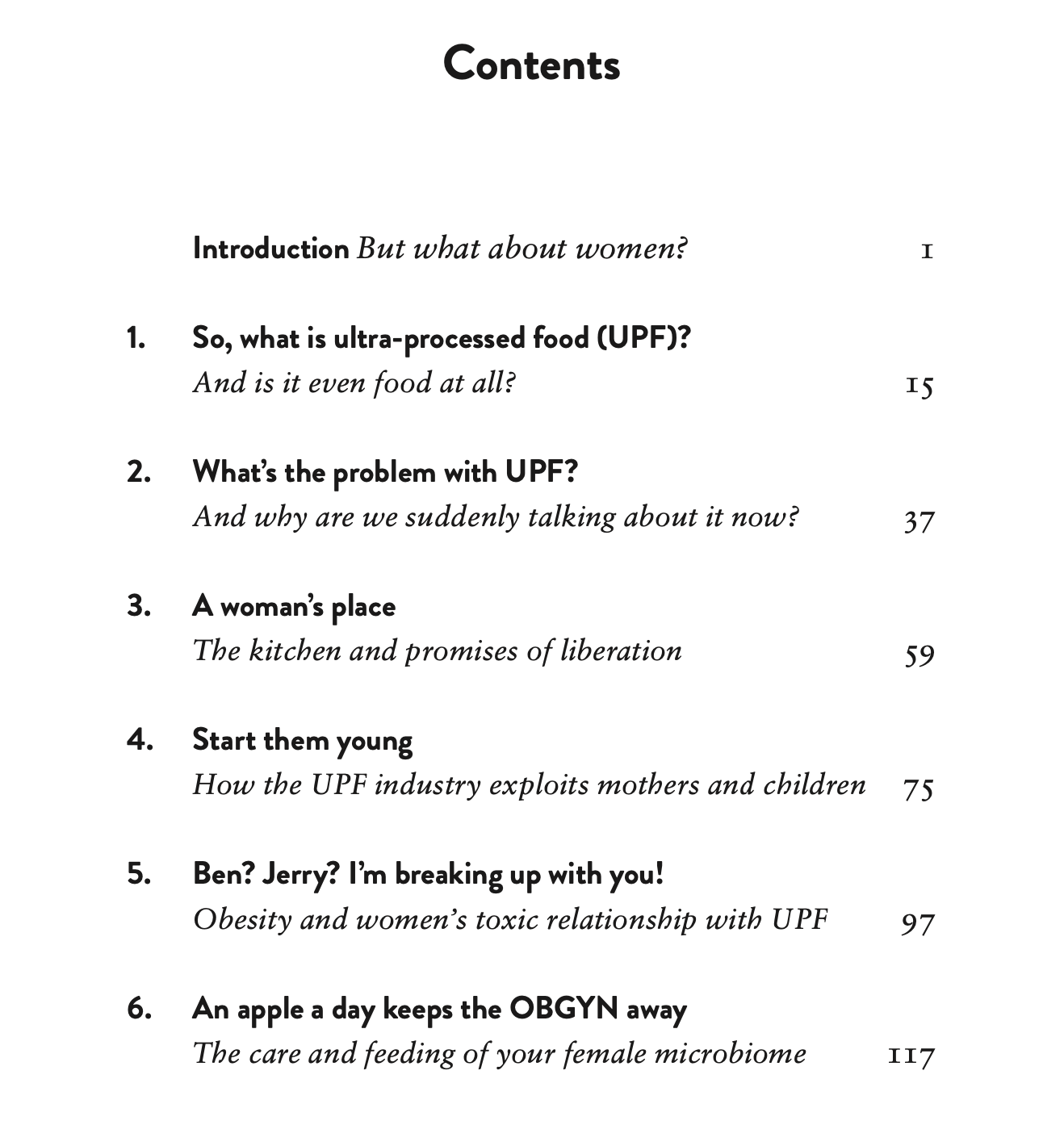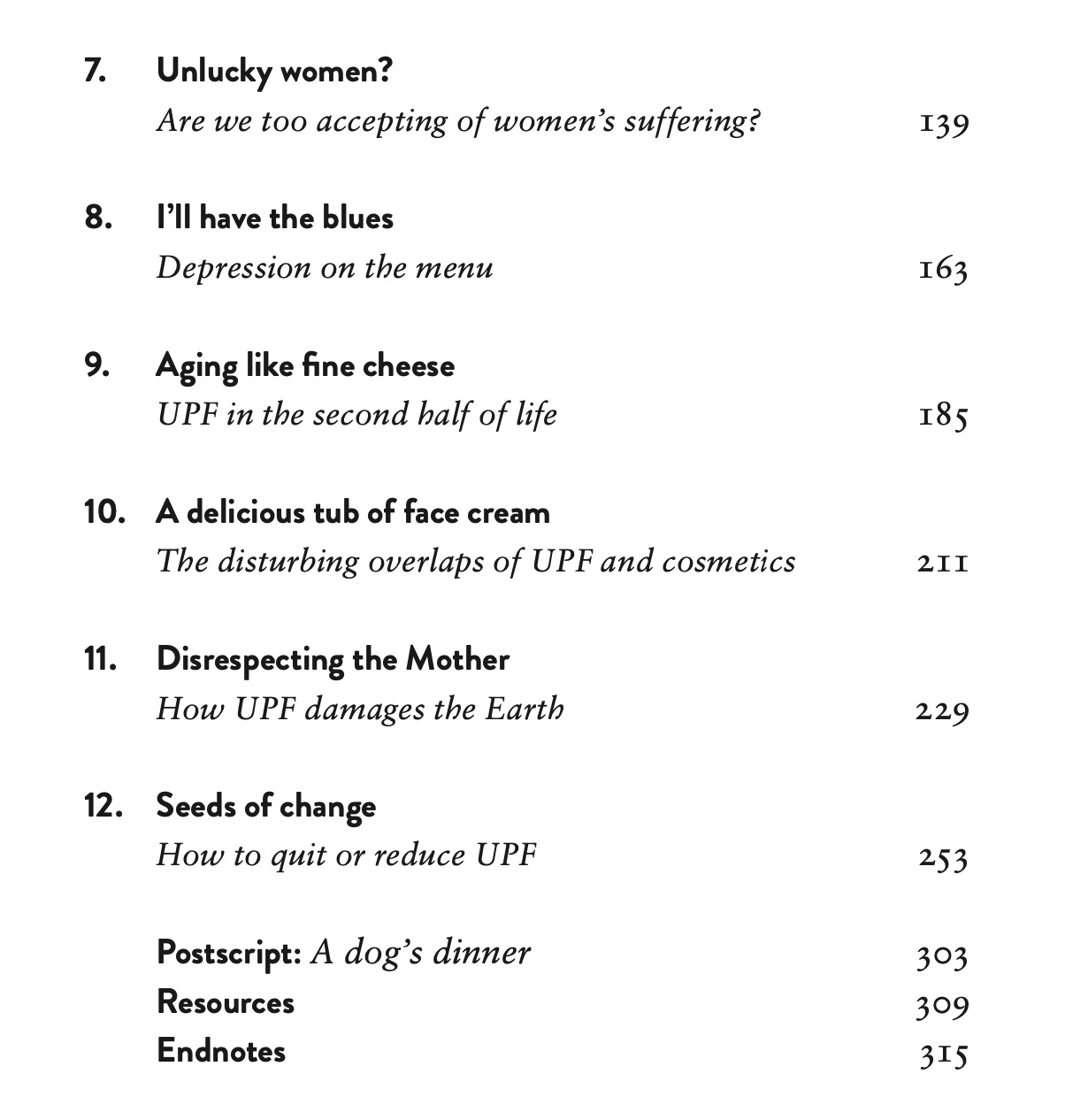Why did I write a book about ultra processed food?
What's on our plates says more than we think about who we are
Tomorrow I’m catching a very early train to London to go and sit in a tiny, padded box for three days and record the audiobook of Ultra Processed Women, which comes out on 3rd July in hardback, woop woop!
I will write more about the experience of recording an audiobook in this Sunday’s nosebag, but for now, I absolutely have to tell you the story of the first audiobook I recorded, which was Give Birth like a Feminist, back in 2019. I turned up at the recording studios, slightly nervous and also a touch hungover from the previous night’s Harper Collins Summer Party, and parked outside was a huge, intimidating looking black car with blacked out windows, and several extremely beefy security guards, all with ear pieces and dark, well-cut suits. I was desperate to know: who did this car belong to?! For a while, even the audio editor wasn’t allowed to tell me. But after some sleuthing of which famous people had a book coming out soon with Harper Collins, I worked it out. It was none other than former PM, David Cameron. One comical moment though, was that after DC left the studio with his entourage of heavies, my sound engineer discovered he’d left a packet of crisps behind - and ate them. Were they smoky bacon flavour? Well, that would be telling.
Anyway, back to Ultra Processed Women!
(although crisps are relevant I suppose!)
Renaming this substack WHAT ABOUT WOMEN has really helped me to make sense of my core purpose, as a writer, and as a feminist. I know that many of you follow me for my ‘gender critical’ content, but I’ve come to see that everything I’ve focused on, ever since I first started writing fifteen years ago, has had that question at its heart. In a world that regularly sidelines women or leaves them out of the conversation completely, it’s my life’s purpose, I think, to keep reminding everyone that women are whole people, and that they matter. They matter when they are giving birth, and as new mothers; they matter in language and law and policy; they matter when they are being taught about their bodies at a young age; they matter when we consider the world and decide in which direction we wish our culture to travel.
It was this latter point that drew me to the subject of food. Initially, simply because I heard a lot of radio programmes and podcasts about ‘UPF’ (ultra processed food) and I almost never heard women specifically mentioned. I noticed that UPF was being talked about as a problem that ‘we’ needed to fix, but, I wondered, who was this ‘we’ going to be? Because the last time I looked, the people who are often in charge of what’s in the fridge and what’s for dinner, are women, and mums. (Yes I know men shop and cook too. But the stats tell us it’s more likely to be women.) And CEOs of the world’s biggest food companies, who incidentally control almost all of the brands you see in the supermarket, are, at the time of writing, all male.
UPF is a man made problem, entirely born out of greed, and, as you will read in my book, it is damaging not just our bodies, but the planet herself. But what is the solution? Must women now have another issue to add to their mental load, another thing to worry about as they push the trolley round the shops and try to make better choices?
Added to this, as I journeyed through the experience of writing the book, I began to see that UPF is not just about food. What we see on our plate is representative of our priorities, our values, and our current culture. In a time when everyone is worried about smartphones and social media, I would urge you to consider what’s in your fridge as part of the same picture.
There are running themes when we begin to think about UPF that we can find elsewhere in our lives: mindless consumption; quantity over quality; lack of human contact; disconnection from nature; never having enough time. As we peer at our phone screens rather than look our friends and families in the eye, we ourselves become ultra-processed. We dull our animal instincts and forget our deep need to be in nature. We lose our ability to focus or to stick with something slow-moving or challenging. We find it harder and harder to read books. We spend on average nearly five hours a day on our phones, and yet – and I am as guilty of this as the next person – we say we don’t have enough time. Scrolling through our ‘feed’ (ironic that it’s called this, isn’t it?) is starving us of time outdoors, shared activities with friends, lovemaking, gardening, hugs, fitness and, yes, cooking and eating together. The global pandemic, with its zoom meetings, lockdowns and face masks, has only exacerbated this growing collective social anxiety and disconnectedness. We all know that sitting on our butts, endlessly doomscrolling, is making us mentally and physically unwell. And yet we continue: swipe up, swipe up, swipe up; discarding and consuming and discarding again on a repetitive cycle.
Extract from the introduction, which is entitled, “But what about women?”
There is much to wrestle with on the topic of UPF, and the book is jam packed with my research into the specific impact it has on the female body, for example:
more painful and heavier periods, and worse symptoms of PMS;
increased symptoms of menopause;
50 per cent higher risk of depression in middle-age women;
increased risk of developing and dying from female cancers;
higher risk of health problems in pregnancy;
increased risk of dementia and Alzheimer’s.
But I’ve also tried to look at the bigger picture, including women - and feminism’s - relationship with ‘the kitchen’, and how UPF companies have exploited that; the impact on the environment of UPF production; and the weird and frankly revolting overlaps between food and cosmetic ingredients. Here’s a list of the chapters.
In June, instead of our usual Writing for Change group, I’m going to do a ‘book launch’ via this substack, and you are all invited (both paid and free subscribers). I’d like the launch to take the shape of a Q&A, followed by a raffle for some signed copies (paid subscribers will get extra entries!). So please do start sending me your questions now, and I will try to answer as many as possible on the night of the launch, which will be the 19th June, at 6.30pm. You can leave questions as a comment on this post, or message me.
I’m looking forward to opening up this conversation about what we are eating, how this has happened, and what needs to change. But most of all I’m looking forward to asking: WHAT ABOUT WOMEN.
Please consider subscribing so that you will be the first to receive my posts and hear my news. I appreciate each and every one of you, who support me to keep writing.
I’ve written four books that all ask, WHAT ABOUT WOMEN, would you like one?







I've pre-ordered mine and wish I could read it now! I committed to being present through the good and bad, and stopped drinking alcohol 3 months ago, and then it felt right to stop using caffeine too - and now I've managed to lose those from my life I feel like finding a less-processed way of life isn't too overwhelming now. We have decided never to buy bread from shops again - and I'm loving my new breadmaker 🥰 After being diagnosed with vulval LS a couple of months ago (a scary, chronic, incurable intimate condition) it has strengthened my resolve to remove toxins from my body, and my girls. My question at the moment is: how do I manage this without it costing so much?? I already have to factor in our various preferences and food allergies. I wish I could buy all organic wholefoods, but I'm worried how we'll afford it. I think Shaun thinks he's just going to eat steak, eggs and spinach every day 😅
I'm also interested to know how quickly our bodies can recover after we stop having lots of ultra-processed foods. I'm looking forward to feeling transformed and full of vitality ☺️ I've been trying to only eat whole foods for the last couple of weeks and in my head I keep thinking 'no limits on nourishment'. At the end of every day when I know I've only given my body things that she will like and will help her, I feel so happy - I think my body is telling me she feels happy. And it feels very different to my conditioned relationship with food where I was either good or bad and foods were either good or bad. I feel so excited about the thought that no real foods are unhelpful because our bodies know how to process them and it's only when we feed them fake foods that our bodies can't recognise that things go wrong.